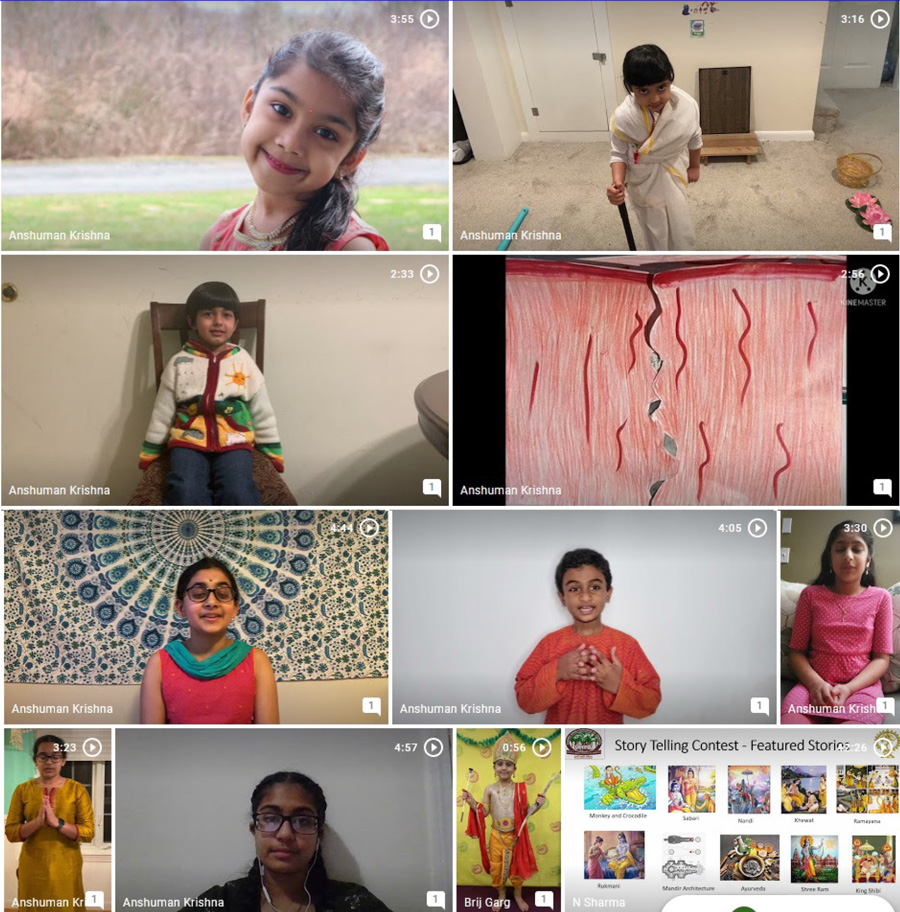- Hindu kids in America often feel stuck between two cultures, like they don’t fully belong at home or at school.
- They sometimes feel confused about who they are, and may hide their culture to fit in, which can hurt their feelings and mental health.
- Parents and kids don’t always agree, especially about things like clothes, rules, or traditions.
- When families listen and support each other, it helps kids feel proud of their culture and more confident in who they are.
Growing up in America while being part of the Hindu culture can be a very complex and challenging experience for many. Children and teens from Hindu families often face challenges trying to fit into both worlds. Because of this, many feel the need to hide parts of themselves, and some even experience a loss of identity because they can’t figure out who they truly are. At times, they feel too “American” at home and too “Indian” at school. There’s constant pressure to fit in, and being from a different culture can lead to misunderstandings that only make things more confusing and hurtful. For many Hindu families living in America, these struggles are a regular part of life.
Young children often go through an identity crisis while trying to understand where they belong and who they’re supposed to be. At home, with family, they follow the traditions they’ve known since birth. But after being exposed to American culture and trying to fit in at school, even their own family might label them “too American.” Meanwhile, at school, it’s the opposite. No matter how hard they try to blend in, there are parts of their culture they can’t hide—whether it’s their hair, clothing, or even wearing a bindi. Despite all the effort to fit in, they’re often considered as “Indian,” not as individuals or even as friends.
This might seem like a problem that’s easy to fix, but it’s not, and it can seriously affect students’ mental health. Many try to solve it by hiding who they are, whether that means avoiding traditional food, skipping religious practices, or distancing themselves from cultural traditions—all just to fit in with American norms. But doing this pulls them away from their roots. Even though American society is slowly becoming more accepting of different cultures, many students still feel unsure about their identity and where they truly belong.
The pressure to fit in can push some students to extreme lengths, even to the point of giving up their culture entirely. This not only changes how they see themselves but also creates tension at home. Many Hindu parents strongly value their traditions, so when their children begin to change how they dress or behave, it can strain their relationship. These kids end up stuck between trying to meet their family’s expectations and trying to fit in socially. This constant conflict can lead to deep confusion, identity struggles, and in some cases, even depression.
It’s not just kids who struggle—young adults and parents also face challenges in adjusting to American culture. Many young adults entering new or even familiar workplaces face stereotypes and judgment. People often make assumptions about them based on what they wear—like a bindi or sari—or the customs they follow. They’re often judged simply for trying to stay connected to their religion. Many workplaces don’t understand or accommodate religious dietary needs, with little to no vegan or vegetarian options, and no spaces for fasting individuals. On top of that, it can be hard to ask for time off to celebrate cultural holidays.
In smaller towns, the lack of temples or cultural communities makes things even harder. Combined with busy Americanized work schedules, it becomes difficult for people to pray or maintain daily spiritual practices. Many begin to feel disconnected from their faith and culture because they don’t have the spaces or communities to support them.
Parents also face major challenges raising their children in America. Many struggle to pass on religious values, cultural traditions, and native languages to kids who are heavily influenced by American society. Parenting styles often clash, with children wanting a more Western approach that doesn’t always align with traditional expectations. These differences can lead to arguments, especially when children don’t fully embrace the culture their parents are trying to preserve. This can be painful for parents, who may feel rejected or unappreciated.
Another sensitive issue is intercultural marriage. Many parents find it hard to accept relationships outside their faith or caste, especially when extended families place pressure on them to “keep the bloodline” going. These cultural expectations can be overwhelming for young adults who are simply trying to live their lives while respecting both their heritage and their individuality. The pressure to balance both often becomes a heavy emotional burden.
However, although growing up as a Hindu in America can feel challenging at times, it can also be a very rewarding experience. Living between two cultures might cause confusion at times, but it also helps build pride, confidence, and a strong sense of identity. It’s important for parents and extended family to understand what their children are going through. When they listen, offer support, and help with everyday problems—like fitting in at school or practicing traditions—children feel more supported. With the right guidance, they can stay connected to their culture, be proud of their Hindu roots, and become strong, balanced individuals who feel comfortable in both worlds.
Relevant websites
- https://browngirlmagazine.com/indian-american-proud/?utm_source=chatgpt.com
- https://www.jsr.org/hs/index.php/path/article/view/4506?utm_source=chatgpt.com
- https://www.indiatoday.in/opinion/story/the-quiet-struggle-of-growing-up-hindu-in-america-and-why-silence-is-no-longer-an-option-2681294-2025-02-17?utm_source=chatgpt.com
- https://induv.medium.com/being-hindu-american-is-a-journey-not-a-performance-113220224c3e




![[ India Today ] Ohio senator JD Vance thanks wife, a Hindu, for helping him find Christian faith](https://hinduvishwa.org/wp-content/uploads/2024/06/us-senator-jd-vance-reveals-how-his-hindu-wife-usha-helped-him-find-his-christian-faith-image-re-272530504-16x9_0-120x86.webp)










